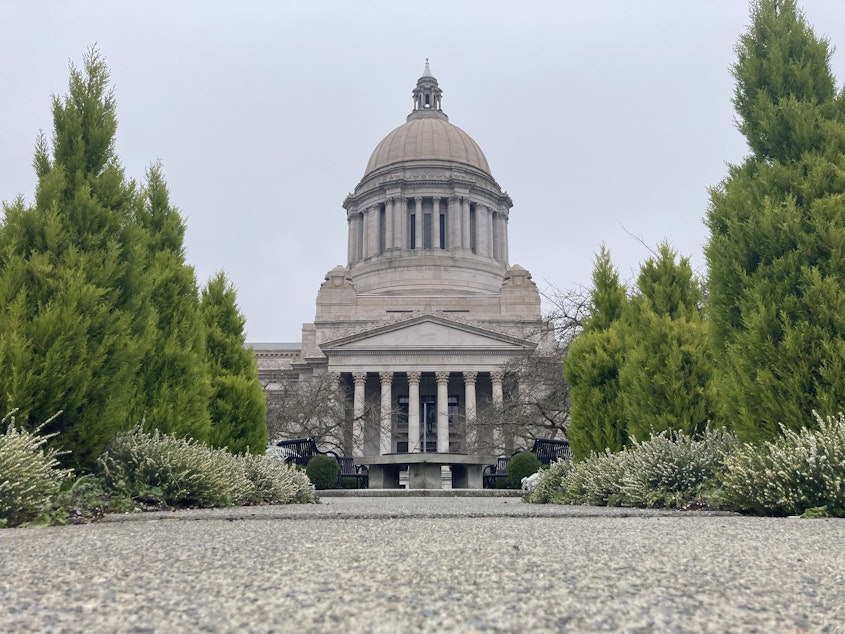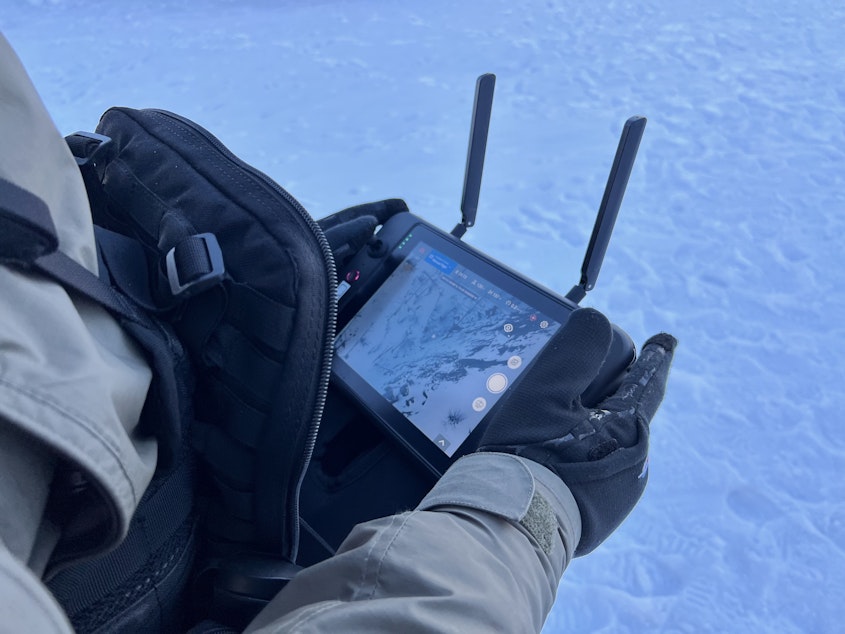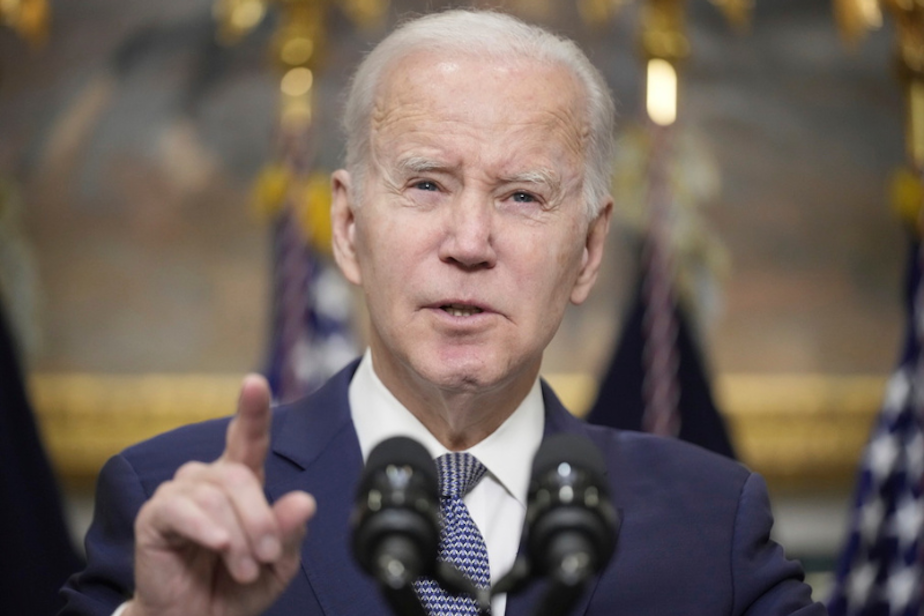Teachers, lawmakers, and cherry blossom trees: Today So Far

- The rate of teachers leaving the job is at a 38-year high in Washington state.
- Lawmakers in Olympia passed a key deadline last week, marking which bills are moving forward, and which ones are being filed under "maybe next time."
- A solution to Seattle's cherry blossom drama may have emerged.
This post originally appeared in KUOW's Today So Far newsletter for March 13, 2023.
The rate of teachers leaving the job is at a 38-year high in Washington state. That adds up to 9%, recorded at the end of the 2021-22 school year. The state's teacher turnover rate is at 20% — which includes teachers moving to different schools, going into non-teaching roles, and those leaving the profession altogether.
The past few pandemic years seem to have exacerbated the issue, and it appears that this trend is more severely felt in high-poverty schools. KUOW's Sami West has the full story here.
Lawmakers in Olympia passed a key deadline last week, marking which bills are moving forward, and which ones are being filed under "maybe next time."
Northwest News Network's Jeanie Lindsay has a great roundup of such bills. Some have gone through smoothly with a bipartisan thumbs up, such as support for nurse staffing and increasing the supply of housing. But there are other bills moving forward that aren't as widely supported, many of which (unsurprisingly) fall along party lines. Public safety is one divisive issue. The effort to ban the sale of assault rifles, and implement a standard 10-day waiting period to purchase a firearm, has proven successful so far in the House. Now it's working through the Senate. Expect pushback, primarily from Republicans. There's another effort in the Senate that aims to hold gun sellers liable if weapons they sell are later used illegally.
There is also the issue of police pursuits that is proving to be a hot topic. After some drama last week, a bill that would ease up on some recently implemented restrictions around pursuits is moving forward. Republicans want more out of it, and many Democrats are hesitant to change course. Lawmakers changed the law in 2021, stating that police can only pursue for suspicion of DUI, and with probable cause for violent and sexual assault crimes. The proposal up for consideration now would lower the bar from "probable cause" to "reasonable suspicion" for such offenses, and add escape, domestic violence, and vehicular assault to the list. I previously covered the big difference in TSF.
Sponsored
And those are just the bills around public safety. Lawmakers are also chatting about health care, housing, environment, and changes to various drug laws. Check out the full story here.
A solution to Seattle's cherry blossom drama may have emerged last week. The city wants to remodel the sidewalks near Pike Place Market, along Pike Street. To do this, crews will have to cut down cherry blossom trees that line the street, a move that proved controversial for local tree lovers. Mayor Bruce Harrell has stepped in and ordered that the trees be cut down anyway, but unlike the previous plan (which was to replace them with elms), the city will now replace the eight cherry blossoms with 24 cherry blossoms. They'll be placed both along the remodeled stretch of Pike Street, as well as other parts of Seattle's waterfront.
This move comes alongside the city's current effort to increase its tree canopy, which has been on the decline in recent years. Read the full story here.
AS SEEN ON KUOW

Sponsored
Dakota Mendenhall learns to fly a drone in Washington's Methow Valley. Mendenhall and two other fighters, who all have embedded with Ukrainian troops, recently took a weeklong intensive drone training class. After more than a year in Ukraine, Sandra Eira says learning new defensive skills, like piloting surveillance drones, could be a matter of life and death. “The war shifted from being a full on World War II (fight). During the spring (and) summer, it turned into being all about drones and artillery. So it's a brand new war, and it always switches and changes,” Eira said. Read more here. (Northwest News Network)
DID YOU KNOW?
There are a couple of sources of physical music media in my life these days. One is a Spin Doctor's CD that is stuck in my car's CD player. The other is a small collection of vinyl records for some of the more cherished works — R.E.M., Wes Montgomery, Social Distortion, Sam Cooke, Lindi Ortega, Amythyst Kiah, yada yada yada. Now, you may think that vinyl albums are outdated and only kept alive by hipsters who mention Wes Montgomery and Social Distortion in the same sentence. Turns out, however, that in 2022, vinyl records outsold CDs for the first time since 1987.
There has been a 16-year growth in sales of records, leading up to a total of 41 million sold last year (33 million CDs were sold during the same time). According to NPR, streaming music still dominates and accounts for 84% of recorded-music revenue. When it comes to physical media, records now add up to three-quarters of revenue. Apparently, the trend of collecting and investing in at-home activities also contributed to a surge in demand for records.
It makes sense, when you think about it. At the risk of sounding like an employee at Championship Vinyl, records do have superior sound quality to all the media that came after it, including streaming. So if you're a big audiophile or a basic music fan, it makes sense that this would be the go-to format. Plus, with the art, the player, and so forth, everything around a record is just a lot more fun than any mp3. When I think of the last few shows I've attended, I've more likely walked away with a record than anything else.
Sponsored
What about you? Are you still holding onto, or expanding, your record collection? Do you have a few binders of CDs or one of those little disc cases that were commonly found under your car seat or strapped to your visor? I still do. Let me know at dyer@kuow.org.
ALSO ON OUR MINDS

Biden reassures bank customers and says the failed firms' leaders are fired
President Biden says customers of U.S. banks should have confidence that their money will be there when they need it, as he seeks to limit the damage done by the collapse of Silicon Valley Bank and other problems. He also promised accountability for leaders and investors of banks that fail.

